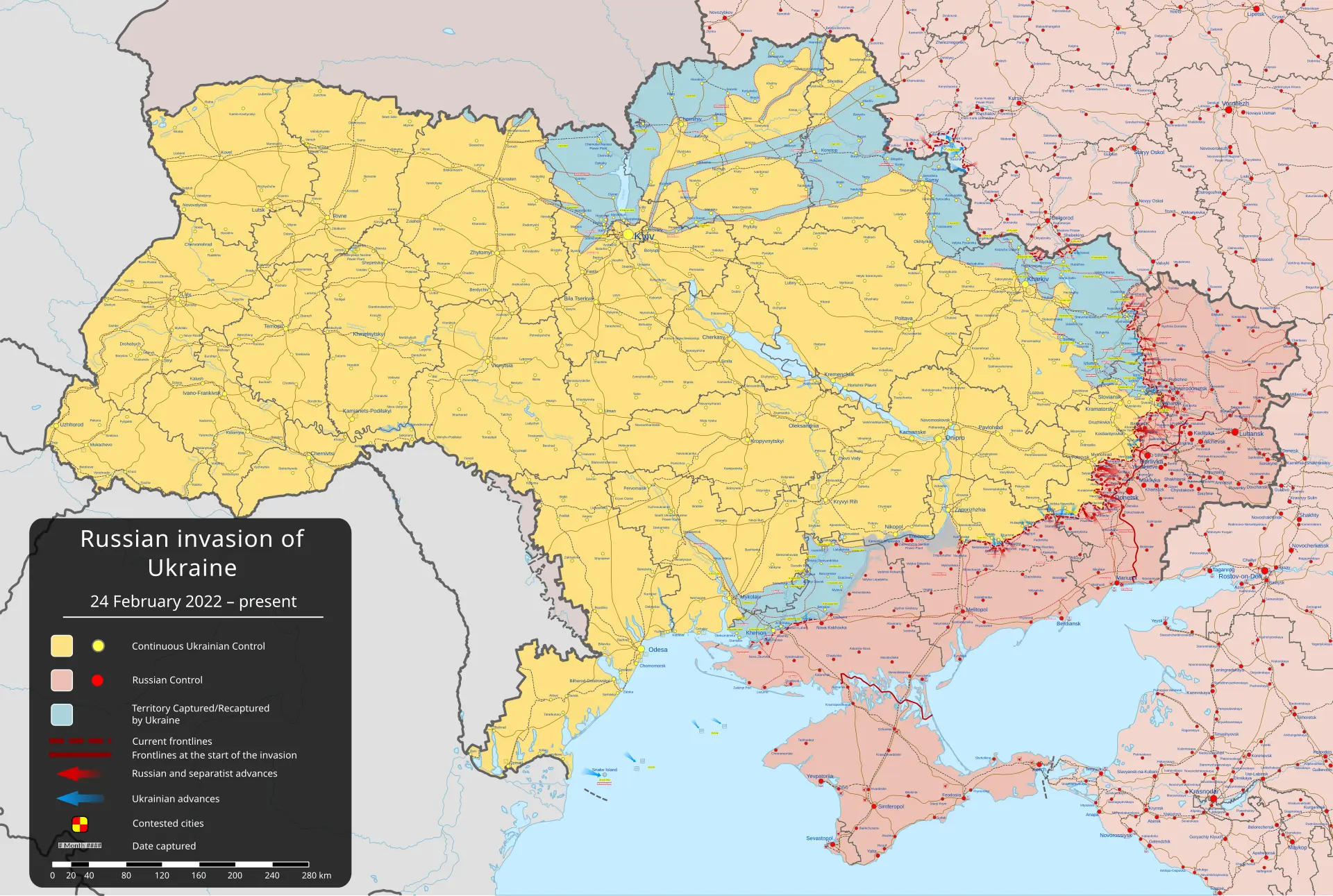Bulletins and News Discussion from November 18th to November 24th, 2024 - Could It Soon Be Azover? - COTW: Ukraine
Bulletins and News Discussion from November 18th to November 24th, 2024 - Could It Soon Be Azover? - COTW: Ukraine


back in my map era, we're ukrainemaxxing right now
Declarations of the imminent doom of Ukraine are a news megathread specialty, and this is not what I am doing here - mostly because I'm convinced that whenever we do so, the war extends another three months to spite us. Ukraine has been in an essentially apocalyptic crisis for over a year now after the failure of the 2023 counteroffensive, unable to make any substantial progress and resigned to merely being a persistent nuisance (and arms market!) as NATO fights to the last Ukrainian. In this context, predicting a terminal point is difficult, as things seem to always be going so badly that it's hard to understand how and why they fight on. In every way, Ukraine is a truly shattered country, barely held together by the sheer combined force of Western hegemony. And that hegemony is weakening.
I therefore won't be giving any predictions of a timeframe for a Ukrainian defeat, but the coming presidency of Trump is a big question mark for the conflict. Trump has talked about how he wishes for the war to end and for a deal to be made with Putin, but Trump also tends to change his mind on an issue at least three or four times before actually making a decision, simply adopting the position of who talked to him last. And, of course, his ability to end the war might be curtailed by a military-industrial complex (and various intelligence agencies) that want to keep the money flowing.
The alignment of the US election with the accelerating rate of Russian gains is pretty interesting, with talk of both escalation and de-escalation coinciding - the former from Biden, and the latter from Trump. Russia very recently performed perhaps the single largest aerial attack of Ukraine of the entire war, striking targets across the whole country with missiles and drones from various platforms. In response, the US is talking about allowing Ukraine to hit long-range targets in Russia (but the strategic value of this, at this point, seems pretty minimal).
Additionally, Russia has made genuine progress in terms of land acquisition. We aren't talking about endless and meaningless battles over empty fields anymore. Some of the big Ukrainian strongholds that we've been spending the last couple years speculating over - Chasiv Yar, Kupiansk, Orikhiv - are now being approached and entered by Russian forces. The map is actually changing now, though it's hard to tell as Ukraine is so goddamn big.
Attrition has finally paid off for Russia. An entire generation of Ukrainians has been fed into the meat grinder. Recovery will take, at minimum, decades - more realistically, the country might be permanently ruined, until that global communist revolution comes around at least. And they could have just made a fucking deal a month into the war.
Please check out the HexAtlas!
The bulletins site is here!
The RSS feed is here.
Last week's thread is here.





